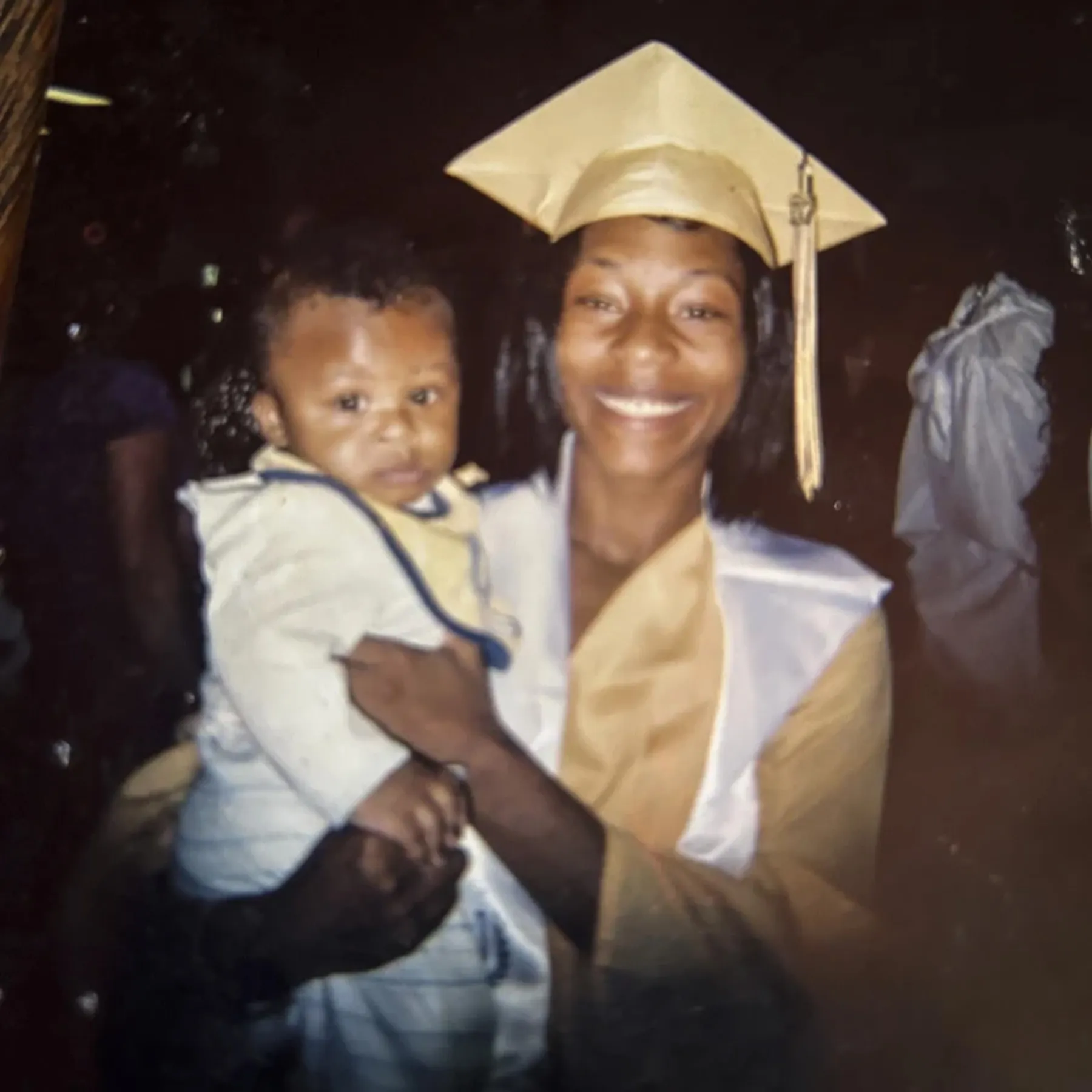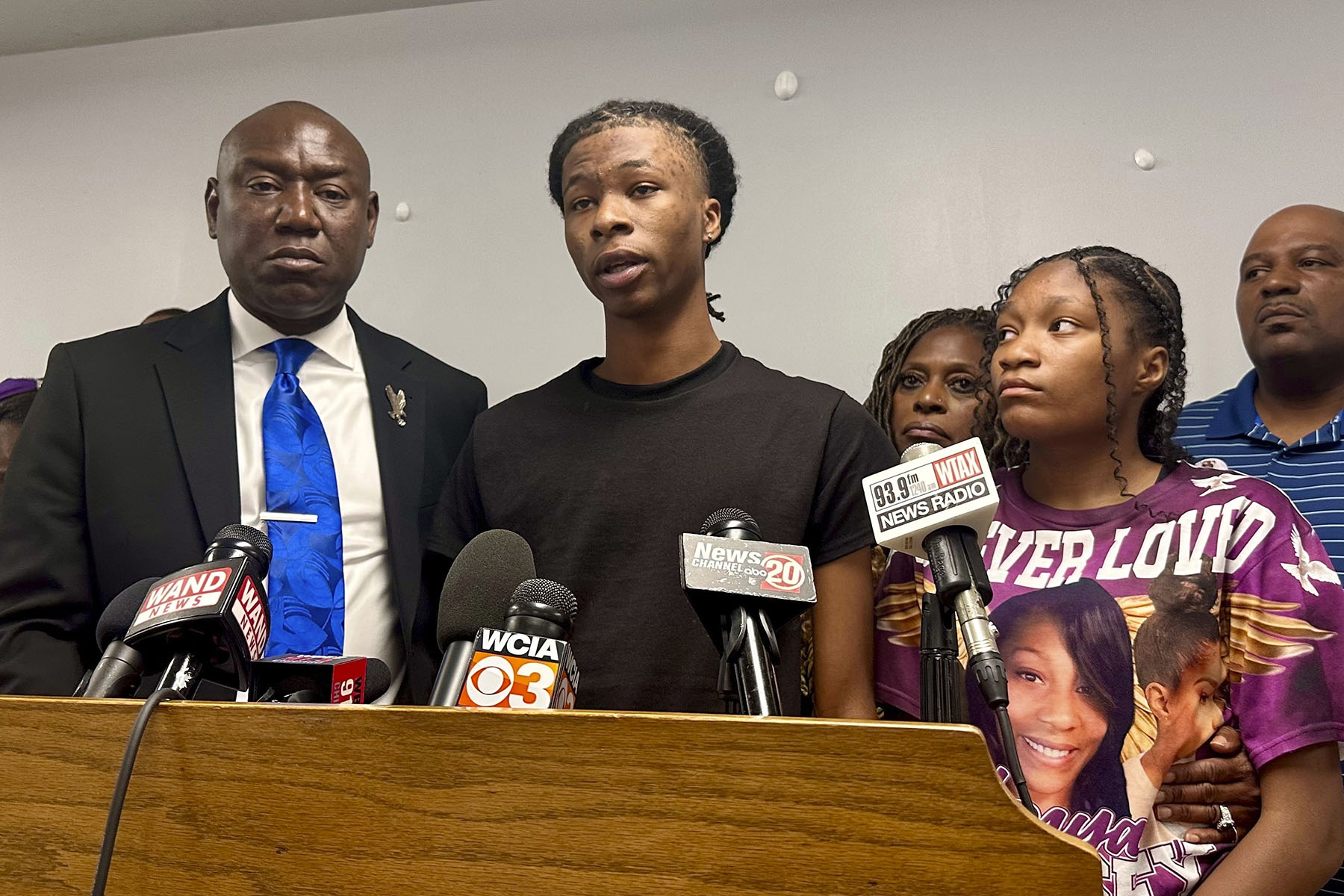Sonya Massey should be alive today. That is the message ricocheting across the internet as the killing of Massey, a 36-year-old Black woman and mother, by a White sheriff’s deputy in Illinois gains national attention from President Joe Biden, advocates and celebrities following the release of police body camera footage on Monday.
Massey was shot on July 6 while handling a pot of hot water in her kitchen by a sheriff’s deputy standing several feet away from her in the living room. Her killing happened a week before the nine-year anniversary of Sandra Bland’s death, which elevated the #SayHerName movement’s push to raise awareness about Black women victims of police brutality.
“Sonya Massey, a beloved mother, friend, daughter, and young Black woman, should be alive today,” Biden said in a press statement on Monday. “Sonya’s family deserves justice. I am heartbroken for her children and her entire family as they face this unthinkable and senseless loss.”
Massey called 911 in the early morning hours of July 6 because she was concerned about a potential intruder outside her home. The police body camera video shows Sangamon County Sheriff’s Deputy Sean Grayson and another deputy knocking on her door and yelling at her to come to the door.
“Are you coming to the door or not?” one of the deputies screams at her. “Hurry up.” After Massey attempts to explain her concerns, the deputies tell her that they have not seen anyone and question Massey about a vehicle in her driveway. The body camera footage shows one of the deputies entering Massey’s home minutes later and asking for her ID.
-
Previous coverage
- ‘We all we got’: How Black people online steered the spotlight to Shanquella Robinson’s death
- ‘It helps me know that I am not in it alone anymore’: Breonna Taylor’s mother on her daughter and protests
- Family seeks answers in fatal police shooting of Louisville woman in her apartment
The deputies ask Massey to check on a pot of water boiling on the stove. They appear to move away and she asks, “Where you going?” Her tone is calm and one of the deputies laughs when he replies, “Away from your hot steaming water.”
When Massey says, “I rebuke you in the name of Jesus,” tensions escalate.
“You better fucking not, I swear to God. I’ll fucking shoot you right in your fucking face,” one of the deputies yells. Both deputies then draw their guns and demand that Massey drop the pot. She says, “OK, I’m sorry,” as she tries to duck out of the way. Grayson then shoots and kills her.
Grayson has been fired and charged with three counts of first-degree murder, aggravated battery with a firearm and official misconduct. He has pleaded not guilty.
Massey’s killing is a striking example of how police encounters for Black people — even those who call the police for help — quickly erupt into violence. Detailed data tracking the number of fatal police encounters each year is hard to come by. One database maintained by the Washington Post that focuses on shootings specifically identified that eight of the 1,161 victims fatally shot by police in 2023 were Black women. The Washington Post database shows six fatal police shootings of Black women so far in 2024.

Women, and particularly women of color, are also at risk of sexual violence during police encounters. Leading up to the 2015 rape conviction of former Oklahoma City police officer Daniel Holtzclaw, police investigators determined that he specifically targeted low-income, Black women who had criminal records or a history of sex work or drug use. The trustworthiness of these women was questioned by Holtzclaw’s attorney in court.
The same year of Holtzclaw’s conviction, law professor Kimberlé Crenshaw and the African American Policy Forum launched the #SayHerName movement, which gained increased national visibility in the wake of Bland’s death, as well as those of women like Alexia Christian, Mya Hall and Natasha McKenna. In 2023, Crenshaw published the book “#SayHerName:
Black Women’s Stories of Police Violence and Public Silence,” which analyzes the stories of Black women killed by police and their family members who have advocated for them.
“In the excerpts from the mothers of Say Her Name in the book, we are angered by the contemptuous ways in which their loved ones’ lives were stolen, we are shocked by the callous ways that a mother or a sister was informed or not informed about the brutal police killings of their loved ones. We are heartbroken to hear about the lifelong scars of the young children who witnessed the deaths of their mothers at the hands of police,” Crenshaw said in remarks about the book last year.
Bland died in a Texas jail cell in 2015. Her death and the more recent killings of Breonna Taylor in 2020 and Massey this year are a stark reminder of the threats Black women face when they encounter law enforcement. In Massey’s case, it also highlights broader questions about how the government uses police officers for public safety. A number of programs across the country seek to decrease the amount of contact that law enforcement officials have with the public by establishing unarmed community responder teams.
The sheriff’s deputy who shot Massey has been charged with murder. Her family now awaits what comes next. During a press conference following her killing, Massey’s father called for reforms to the policing system, including the George Floyd Justice in Policing Act that aims to fight police misconduct and use of force, but has not been passed by Congress.
“The only time I’m gonna see my baby again is when I leave this world, and I don’t ever want anybody else in the United States to join this league,” Massey’s father said. “Every member of Congress needs to vote today so that nobody else in this United States of America has to go through what we’re going through.”







